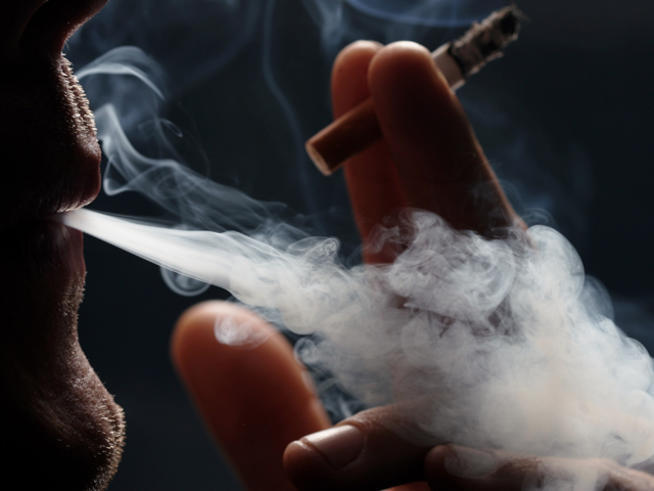Chicago Mayor Rahm Emanuel’s proposal to give Chicago the highest cigarette tax in the nation won overwhelming approval from the Chicago City Council on Nov. 26, a decision that could drive some shoppers out of the city and fuel the smuggling of cigarettes across state borders to sell on the black market, says Tanya Triche, vice president and general counsel of the Illinois Retail Merchants Association.
Emanuel originally proposed to increase the city’s cigarette tax 75 cents per pack but settled for 50 cents, raising the city’s portion of the cigarette tax to $1.18 per pack. The overall tax on a pack of cigarettes in Chicago will rise to $7.17 when county, state and federal taxes are included. That’s 31 cents more tax than in New York City, which will now have the second-highest total cigarette tax burden in the nation.
“It makes the lure of the black market more enticing for them,” says Triche of high cigarette taxes and people who buy cigarettes where taxes are lower and then bring them to Chicago to illegally sell. “It’s an easy gig for criminal enterprise. They fuel that market, that demand.”
Poorest Hit Hardest
An increase in crime is not the only concern. The tax increase will heavily impact neighborhood convenience stores and put a squeeze on residents of Chicago, she says. Hardest hit will be lower-income residents. Many studies show people with low incomes smoke at higher rates than persons with high incomes. Those with low incomes might not have the means to drive outside city limits where cigarettes are less expensive.
The city’s 2014 budget anticipates about $7 million from the tax hike.
Triche says she doubts the city will bring in that much additional revenue because many smokers will try to buy their cigarettes outside the city or from smugglers. Furthermore, she notes, Chicago’s revenue from cigarettes has declined since the city last raised the cigarette tax in 2006. The state and Cook County governments also have raised cigarette taxes since 2006, driving some smokers out of the city and the county and to nearby Indiana to do their shopping.
“The city just loses revenue and people just end up paying higher taxes,” Triche says. “You want to give incentives to people to stay in the city to buy things. It’s no wonder why people are going elsewhere. It’s a major cost savings.”
Jeff Lenard, spokesman for the National Association of Convenience Stores, called the proposal “not well thought out.”
Retailers, Tax Base Both Suffer
“The first thing that happens is people seek out a lower-tax and no-tax alternative. People are very price-sensitive when it comes to cigarettes. People will just drive across the border. The [local] retailers suffer and so does the tax base,” he says.
“They say it’s to reduce smoking and increase revenue. You can’t increase revenues if your user base is decreasing. It’s great news for anyone who anticipates a thriving black market. We saw it in New York City. [Cigarettes] were being sold out of the trunks of cabs, out of duffle bags, in dark places … They were not remitting taxes to the city, to the state. There is no age verification.”
Triche says tobacco products typically make up 40 percent of convenience store sales. And those sales help drive sales of other products.
“There’s going to be a significant impact on convenience stores,” she says, because fewer tobacco sales could lead to fewer sales of groceries, gasoline and other items.
Navin Soni, owner of PK’s Pantry in the nearby Chicago suburb of Elmwood Park, says the tax increase probably won’t affect his sales much because they have already been so hard hit. Even though his store is west of the Chicago city limits and would avoid the tax increase, it’s still in high-tax Cook County.
From 555 to 20 In Stock
“It doesn’t matter to us. They’re $10 per pack. We have about 20 cartons in stock. Before, we would have a $9.99 three-pack special. Then, we had 555 cartons in stock. It ruins businesses,” Soni says of the impact of rising taxes. “[Shoppers] drive 10 minutes farther to DuPage County or Lake County and get them cheaper. It’s a $30 difference. Who would want to buy here? They drive farther, buy other things, fill up with gas where gas is cheaper.”
In neighboring DuPage County, Joyce Zetsher, a cashier at York Cigarette Center in Elmhurst, says the cash register could ring even more with Chicago’s tax increase. At her store, a pack of smokes is $6.50 for some brands.
‘Customers Say It’s Ridiculous’
“I’ve got a lot of customers who tell me, ‘It’s getting ridiculous in Chicago. You’re only spending a little more in gas and we’re right off the highway. I come to Elmhurst to buy mine. I wouldn’t buy them in Cook County,'” says Zetsher.
“Regardless of how you feel about smoking, whether you are for it or not, these are taxes that people are paying. They say [the tax increase] will desensitize people from smoking, but we’ve seen year after year smokers decide to buy their cigarettes somewhere else,” says Triche.
Carolyn Rusin ([email protected]) writes from Chicago.




